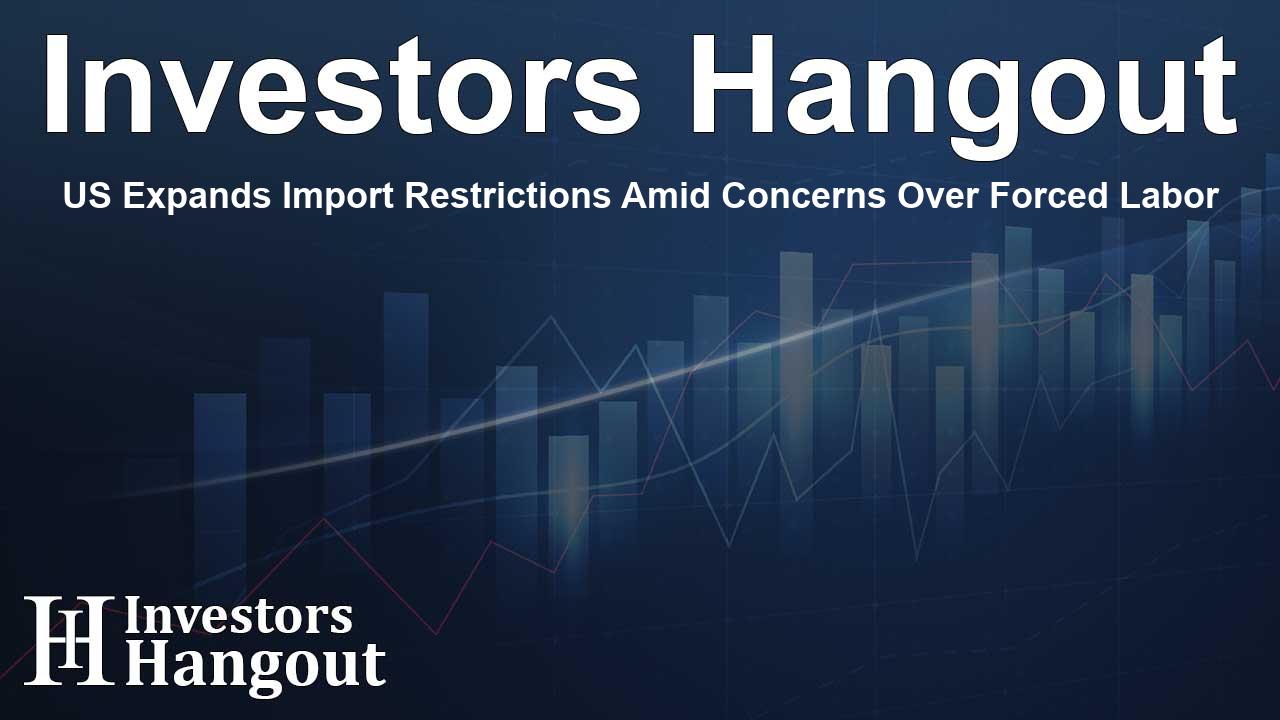US Expands Import Restrictions Amid Concerns Over Forced Labor

US Government's Stricter Import Regulations
The United States government has recently made significant strides in its campaign to combat forced labor practices, specifically targeting imports from companies associated with China's alleged forced labor involving the Uyghur population. This action represents a crucial step toward ensuring ethical practices within global supply chains.
New Regulations Implemented
In a notice released in the Federal Register, the government outlined new additions to its list of companies banned from importing goods into the country. This recent move is a part of the broader initiative to eliminate forced labor from the U.S. supply chain, highlighting the commitment of federal authorities to uphold human rights standards.
The Motivation Behind These Restrictions
The push for stricter regulations stems from ongoing concerns regarding human rights violations reported in China, particularly involving the treatment of Uyghurs in the Xinjiang region. The U.S. government aims to prevent products made under these alleged forced labor conditions from making their way into American markets.
Impact on Trade
This measure may have considerable implications for the trade landscape, as the U.S. represents a significant market for imported goods. Companies that fail to comply with these new regulations risk losing access to one of the world's largest economies, affecting their operational capabilities and overall market viability.
Broader Implications for Supply Chains
This action not only reflects the U.S.'s firm stance on human rights but also sends a message to global supply chains about the importance of ethical sourcing. Businesses worldwide are taking note of the need to improve transparency and ensure that their supply chains are free from forced labor practices.
Future Outlook on Import Policies
As the U.S. continues to refine its policies against forced labor, companies will need to adapt to new compliance standards. The government is expected to conduct ongoing evaluations of supply chains and enforce stricter measures against any businesses found to violate these ethical guidelines.
Frequently Asked Questions
What prompted the U.S. to impose more import restrictions?
The restrictions were prompted by allegations of forced labor practices in China involved with the Uyghur population, leading to enhanced scrutiny of imports.
How will these restrictions affect American consumers?
The ban may limit the availability of certain products in the U.S. market, potentially leading to higher prices or fewer options for consumers.
What are the implications for companies?
Companies must ensure their supply chains are free from forced labor practices or risk losing access to the U.S. market and facing legal repercussions.
Are these regulations permanent?
While the current regulations are in effect, the U.S. government will continue to assess their impact and may adjust policies as necessary.
What is the U.S.'s broader strategy against forced labor?
The U.S. aims to create a comprehensive approach that includes monitoring, enforcement, and collaboration with international partners to combat forced labor globally.
About Investors Hangout
Investors Hangout is a leading online stock forum for financial discussion and learning, offering a wide range of free tools and resources. It draws in traders of all levels, who exchange market knowledge, investigate trading tactics, and keep an eye on industry developments in real time. Featuring financial articles, stock message boards, quotes, charts, company profiles, and live news updates. Through cooperative learning and a wealth of informational resources, it helps users from novices creating their first portfolios to experts honing their techniques. Join Investors Hangout today: https://investorshangout.com/
Disclaimer: The content of this article is solely for general informational purposes only; it does not represent legal, financial, or investment advice. Investors Hangout does not offer financial advice; the author is not a licensed financial advisor. Consult a qualified advisor before making any financial or investment decisions based on this article. The author's interpretation of publicly available data shapes the opinions presented here; as a result, they should not be taken as advice to purchase, sell, or hold any securities mentioned or any other investments. The author does not guarantee the accuracy, completeness, or timeliness of any material, providing it "as is." Information and market conditions may change; past performance is not indicative of future outcomes. If any of the material offered here is inaccurate, please contact us for corrections.